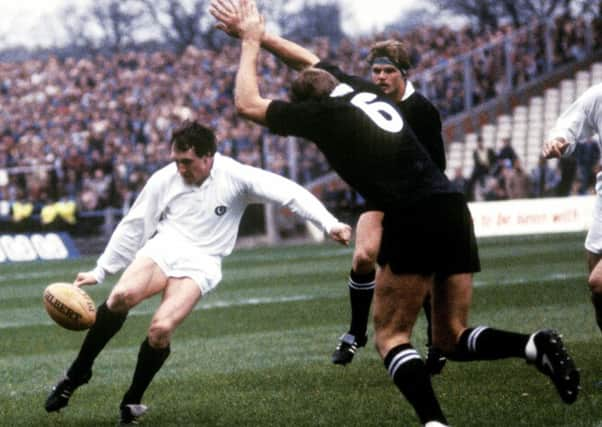Comment: Gregor Townsend should tell players: '˜History is bunk'


Some of the criticism has been scathing. Fair enough, you may say. My view was that we had the game won when we were leading 32-10, and that there was then an unconscious loss of concentration. This sometimes happens even to the best teams when they are well ahead. Indeed reports of the France-New Zealand match suggested that the All Blacks themselves may have suffered a comparable lapse.
They had scored four tries in the first half, and the second one was very even. I would be surprised if Scotland don’t maintain their concentration for the full 80 minutes today; for one thing, we are unlikely to be 22 points ahead early in the second half. So: no chance of complacency.
Advertisement
Hide AdAdvertisement
Hide AdThere were other worrying things on Saturday: the failure to gather restarts, too many handling errors, and too many kicks down the field that asked no questions of the defence. Given the All Blacks’ ability on the counter-attack, I would prefer to see us put the ball into touch. Sure, you will probably lose the line-out, but at least your defence is organised. Give New Zealand space and you are usually in trouble. Deny them space and like any other team they may make mistakes.
Scotland conceded too many penalties last week. So did Australia in Cardiff, but nevertheless also won. Most penalties these days come at the breakdown and leave the average spectator saying “what was that for?” This is often a fair question. Watching the second-string France –New Zealand game on Tuesday, I found myself muttering “in at the side” time and again as the All Blacks drove into the bodies at the tackle-point. The referee eventually gave a penalty for coming in at the side rather than through the imaginary gate – against France, as it happened, a decision which, if I had been French, I would have regarded as a bad joke, in view of the regularity with which the All Blacks committed this same offence, unpunished.
Everyone knows that we have never beaten the All Blacks, and indeed have come close on fewer than ten occasions. But the weight of history really doesn’t apply. Indeed this might be a good day for Gregor Townsend to quote Henry Ford and tell his players that “History is bunk”. In any sport some things are done for the first time. Ireland had never beaten New Zealand until they did so in Chicago last year, and, though Ireland may be the best international team in the northern hemisphere, there is not much to choose between them and Scotland.
The closest we have come to beating New Zealand was probably the 25-25 draw in 1983. Admittedly the All Blacks scored three tries to our one. So, with modern scoring values, they would have won. But if Peter Dods had kicked the touchline conversion of Jim Pollock’s injury-time try, it would have been our victory. That try was created by a clever kick from David Johnston, which put the ball behind the All Black defence and over the try-line. A few years ago he told me the kick had gone wrong every time in practice, and he was told to forget about it. Happily, he paid no attention even though this instruction came from Jim Telfer. John Rutherford dropped two goals that afternoon – Finn Russell might be wise to try a couple. Scotland, having run New Zealand so close, went on to win the Grand Slam the following Spring.
The most surprising of the close encounters was in 1953-54 when we lost 3-0, to a penalty kicked by the full-back Bob Scott, from near the halfway mark. It was surprising because we hadn’t won an international since February 1951. The Scottish captain was Douglas Elliot – just this week installed in the Scottish Hall of Fame. He was our only indisputably great player in the years following the war, and this, in his last season, was his greatest match. That said, the 1953-54 All Blacks weren’t a particularly good team, probably their dullest and least enterprising team to tour the Five Nations.
Are we likely to win today? Probably not. Have we a chance of doing so? Certainly, and a better chance than in any match against the All Blacks for years. If this seems a rash statement, I would add only that the team created by Vern Cotter and being developed by Gregor Townsend may be our best since we were the last Five Nations champions in 1999.